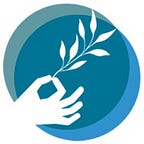How Multilateralism Failed in the Democratic Republic of Congo: The Case of a Stolen Election
The long-delayed end of Joseph Kabila’s tenure as president of the Democratic Republic of the Congo (DRC) and the country’s first peaceful transfer of power might seem like cause for celebration.
But let’s not kid ourselves: Despite all the evidence showing that Martin Fayulu received more votes, Felix Tshisekdi was inaugurated as president. The election was not only a travesty for the integrity of the ballot, but a real failure for the regional and international institutions ostensibly committed to democracy promotion and the rights of citizens in the face of overwhelmingly corrupt regimes. The consequences are profound — not only in Congo, but around the world.
Throughout discussions at last year’s Paris Peace Forum, we grappled with how to reconcile greater international cooperation with the need to uphold democratic values. To the misfortune of the Congolese people, and the shame of the rest of us all, this election illustrated our abysmal failure to begin to meaningfully take on this mission.
At almost every important turn during the post-election fracas, the performance of the Southern African Development Community (SADC), the African Union (AU), and the United Nations can credibly be judged to have been subpar. The result? Pro-democracy groups within Congolese civil society, undermined; the Congolese people, disenfranchised.
Within SADC, only Angola and Zambia stood firmly for the Congolese people’s right to not just a transition of power, but a credible one. Both the SADC and the AU election observation missions were toothless, opting to focus their commentary on electoral process questions rather than what really matters: the outcome itself. Granted, the AU did hold an emergency summit, and called on the DRC to postpone announcing the election results and accept a high-level delegation to Kinshasa. But when the SADC refused to hold the line, the AU swiftly folded, ultimately making both organizations look feeble.
The UN Security Council, meanwhile, struggled to keep up with fast-moving events, broke down in disagreement and eventually released a painfully anodyne statement. The Secretary-General seemed to struggle like a contortionist on a high wire to please all stakeholders, and then questioned the credibility of the leadership of the AU at exactly the wrong time.
This sad display should concern anyone with a faith in multilateralism. When multilateral institutions abandon their values and mistake political expediency for “stability,” they undermine more than their very foundations. They become accomplices to authoritarianism and sow the seeds of future instability.
For the Congolese people, who have rightly been commended for their post-election turn towards peaceful solutions to profound challenges, the disaster has happened already. But what can be learned from this debacle?
First, that there is a structural problem with the African Peace and Security Architecture. While the goal of subsidiarity is laudable, when the AU delegates authority to the sub-regional bodies, it weakens the ability to uphold its own democratic norms.
Second, the moral fortitude of the people who lead these institutions matters. Avoiding hard choices is unacceptable, and those who do so should be held accountable. That includes the possible denial of reappointment.
Third, multilateral institutions are still hostage to states — many run by antidemocratic governments. If we’re going to move beyond old deadlocks, civil society must be granted more space within these systems to ask the most fundamental questions. That increased influence would need to be accompanied by increased technical capacity in a world where new modes of information sharing are causing disruptions in democratic practice.
Fourth, the rapidly shifting positions of the sub-regional, regional and international institutions compounded the confusion, strengthening the hand of spoilers. Better and more formal coordination would be a welcome start.
The next Paris Peace Forum affords us the opportunity to make concrete progress on these issues. But we must first be honest with ourselves about just how far we are from fulfilling a progressive vision of multilateralism that is anchored in rights and values.
Views expressed in this publication are the author’s and do not necessarily reflect the views of the Paris Peace Forum.
Patrick Gaspard is president of the Open Society Foundations. He joined the Foundations as vice president in 2017.
Prior to joining Open Society, Gaspard served as the U.S. ambassador to South Africa from 2013 to 2016. Gaspard has extensive experience in presidential and congressional campaigns. Most recently, he served as a senior aide to President Barack Obama, as the executive director of the Democratic National Committee, and as an assistant to the president and director of the White House Office of Political Affairs. He was the national political director for Obama for America in 2008.
He began his career as a union organizer in New York City. Gaspard was the executive vice president and political director for the Service Employees International Union. He also served as a senior aide to former New York City Mayor David Dinkins, the Manhattan borough president, and on the New York City Council.
Gaspard attended Columbia University in New York City.
